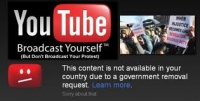Policy Brief
Monitoring Hate Speech on the Internet
by: Annum Sadiq
Date: November 15, 2012
The internet is the world’s largest ungoverned space, where users access information, exchange views and undertake collective action. At least 20 million Pakistanis are online, following a boom in the country’s telecommunications and information technology sector. Broadband access grew by 150 percent between June 2008 to June 2010. However, as the number of internet users increases, the challenges that come with an expanding digital world also rise.
Internet freedom in Pakistan has been graded as partly free, because of political censorship, the blocking of YouTube, the intimidation of bloggers and internet users. Both military and civilian governments have imposed restrictions on the internet, citing national security, the War on Terror, and the preservation of religious values as stated in Article 19 of Pakistan’s constitution. However, on the pretext of these ‘reasonable restrictions’, content perceived as anti-military or anti-state has often been censored.
Individuals and groups have misused the internet to incite violence, prejudice and hatred. Efforts need to be made to curb the advocacy of national, racial, ethnic or religious hatred, or the vilification of people and communities because of gender or sexual orientation.
However, regulating the internet is not an easy task as it is in conflict with the concept of freedom of speech. According to Article 19 of the Universal Declaration of Human Rights, “[e]veryone has the right to freedom of opinion and expression; this right includes freedom to hold opinions without interference and to seek, receive and impart information and ideas through any media and regardless of frontiers.”

